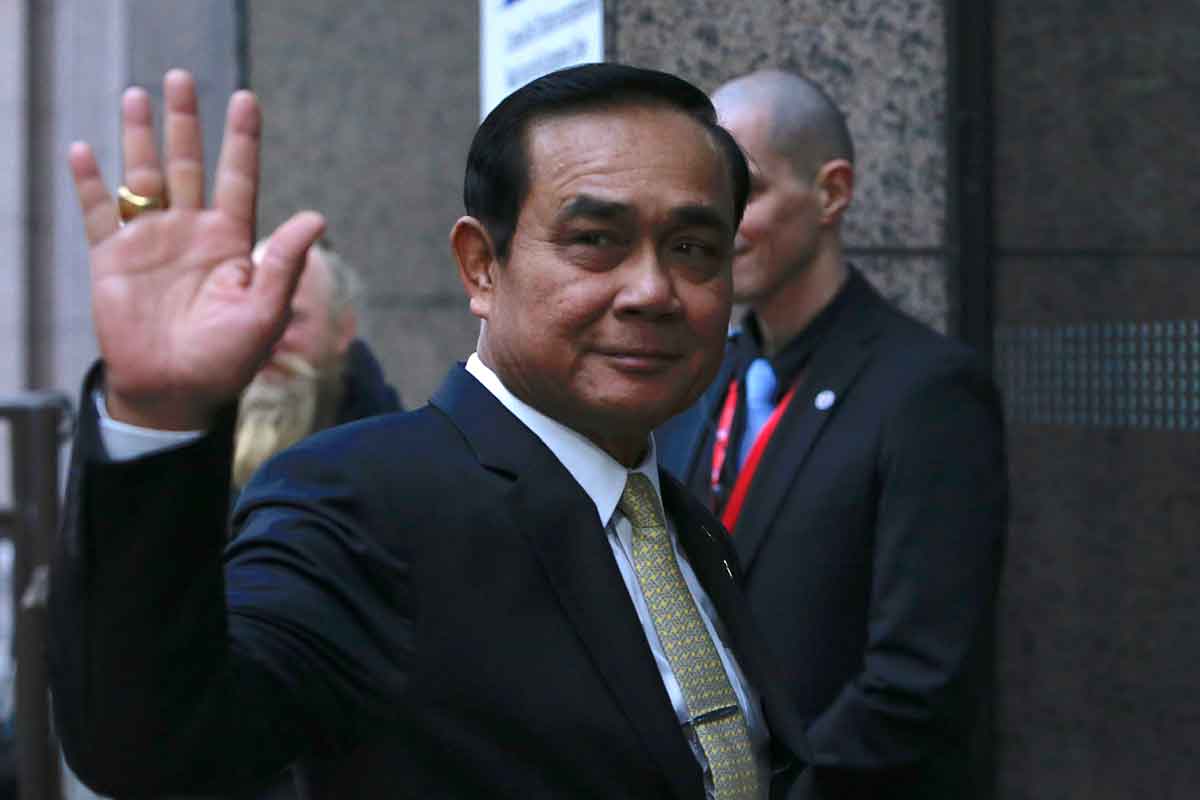Recently, 13 small political parties in Thailand handed in a petition requesting the Election Commission (EC) delay the planned general election, saying they need the extra time to prepare. The secretary-general of the alliance of small parties, Sathu Anumothami, made a formal call to postpone voting day from the tentative 24 February to 5 May, the last day an election can be held based on the constitution.
Local media reported that Sathu, who is also acting leader of the Palang Thai Dee Party, said the request for a delay was made in their own interests and that the parties in the group had no connections with the government or National Council for Peace and Order (NCPO). However, comments from some netizens seem to indicate that they do not believe this to be the case.
Without concrete evidence, it would be unfair to accuse Sathu of being a puppet of the NCPO. What cannot be denied, however, is that among some of the new small parties that stand to benefit from a delay include those that are aligned to the NCPO.
New parties aligned to NCPO
On 2 February, local reports noted that over 40 parties are registered with the Election Commission. Among these parties included Pheu Thai breakaways, looking to take advantage of the new electoral system and win more seats; as well as pro-military parties like the Palang Chart Thai Party, and the Reforming People Party.
The Thai media has criticised the Palang Chart Thai Party as being a pro-junta party since the party’s leader, Major General Songklot Thiprat, is a retired soldier who has worked closely with the NCPO. Deputy junta head General Prawit Wongsuwan, however, has claimed that he does not know who Songklot is.
Nonetheless, while the junta was banning other parties from political activity, the Palang Chart Thai Party, in November 2017, was somehow allowed to launch local branches and hold community service activities in various provinces including Nonthaburi, Khon Kaen and Udon Thani.
The Reforming People Party is led by Paiboon Nititawan, a former junta-appointed charter drafter. As early as August 2016, Paiboon had proposed a political party to promote junta head and Prime Minister Prayut Chan-o-cha as prime minister in the long-awaited election.
Whether or not Sathu is – as some netizens might think – working to get the NCPO more time before the election, the best outcome for Prayut himself could be if the Election Commission denies the request made by the alliance of small parties.

Source: Various sources
Prayut’s situation
Delaying the election any further could create a tricky situation for Prayut. On the one hand, it gives him the chance to gain the popularity he needs in order to secure his position as Thailand’s next prime minister - a much-needed exercise if the National Institute for Development Administration’s (NIDA) latest poll is anything to go by.
NIDA’s latest poll, conducted between 24 and 26 October, indicated that Prayut’s popularity may be dwindling. When asked whether respondents would support Prayut for prime minister after the next general election, a slight majority - 51.7 percent - said "no", reasoning that his past performance has not been satisfactory; 47.5 percent said "yes", believing he would be a good middleman who can lead the country to peace and prosperity; and 0.7 percent were uncertain or had no comment.
Asked whether they think Prayut will return as prime minister, 63.5 percent said this is likely; 35.7 percent thought it unlikely; and 0.7 percent were uncertain or had no comment.
A series of protest rap songs such as “What my country's got?” (Prathet Goo Mee) by Thai rap group Rap Against Dictatorship, and “Equality” by Elevenfinger, have not helped matters for Prayut. So, a little extra time could prove useful for him.
On the other hand, not delaying the election could actually give Prayut’s popularity the bump it needs to secure the sought-after position. Since dissenters believe the NCPO have got their hands in everything (which may include the Election Commission), and Thais are getting restless following delay after delay for the election date; sticking to the promise of 24 February for elections may prove advantageous for him.
Prayut must not forget that the missing piece to his puzzle is getting Thais to favour him over any other political option. Meanwhile, the election has already been delayed numerous times. Each delay came about as a result of Prayut making a promise that he could not keep. If the election is delayed yet again and if this time it is because of the Election Commission, then, not only will this development likely lead to Thais believing that it was Prayut all along behind the decision, but it would also risk Prayut looking like he was attempting to shift the blame to someone else.
Related articles:
